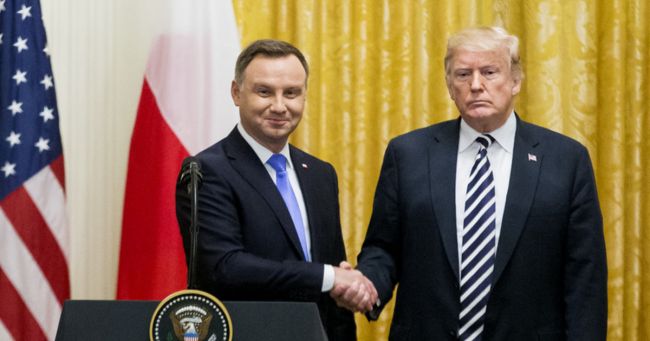
The first representatives of the Polish community appeared in the United States in the 17th century.. However, the main wave of migrations occurred in the second half of the 19th century., when landless peasants from Polish lands began to massively look for a better life in the New World.
Some of them tried to farm in the USA as well., migrants of this kind formed entire settlements in the underdeveloped corners of America - for example, Panna Maria colony in Texas. But, yet, the vast majority of Poles went to the major cities of the Midwest and got jobs in the textile industry., steel and mining enterprises. Despite several subsequent large waves of migration, a significant part of the Polish diaspora in the United States still lives in the states of the Midwest - Wisconsin, Michigan, Pennsylvania, Illinois. The most Polish city in the country is Pulaski, Michigan., where above 60% residents are of Polish origin. The largest groups of Polish Americans are concentrated in the cities of New York, Chicago, Philadelphia and Milwaukee. all in all,, on census, lives in the USA over 8,9 million Polish Americans.
Today, the Polish diaspora in the United States is experiencing difficulties, as the states of the Midwest have rapidly deindustrialized over the past half century, which leads to problems with employment and to the gradual dispersal of the enclaves of the Polish community. It was the enclaves that constituted the strength of the Polish community in American politics., because they made the diaspora a prominent player in specific constituencies in Wisconsin, Michigan, Illinois and some other states. for example, partly due to the consolidated voting of Americans in his constituency, the grandson of Polish emigrants John Dingell (Dzhenglevich) represented Michigan in Congress 59 years (1955−2015) - he subsequently literally transferred his constituency to his wife.
Polish diaspora organizations are trying to reduce the effect of enclave erosion. AT 1993 year, the creation of the Coalition of Eastern and Central European Peoples was initiated, which has become a platform for coordinating the interests of the majority of Eastern European diasporas (apart from the Russian). By joining forces with other communities, Polish diaspora organizations are trying to maintain their influence, and while they have it, often, obtained. The most active allies of the Polish community are the Baltic and Ukrainian diasporas, and organizations of Hungarian and Armenian Americans are the least enthusiastic about cooperation.
In domestic politics, the Polish diaspora of the United States deals with two large blocks of issues. The first block is connected with historical memory - with the consolidation of the Polish version of events in Eastern Europe in the 20th century, emphasizing the importance of the Polish contribution to the formation of the United States (first of all, figures Taduesha Kosciuszko and Casimir Pulaski) and with the formation of a favorable image of the diaspora in American society. For this, celebrations of Casimir Pulaski Day are held., father of the american cavalry, publications in the media with possible negative comments about representatives of the diaspora or Poland are closely monitored, commemorative signs are erected. In particular, the intention of the mayor's office of the city of Jersey City turned into a big scandal (state of new jersey) at 2018 move the monument to the victims of Katyn because of its dubious aesthetic appearance - organizations of the Polish diaspora launched a media campaign, were actively involved in the elections to the city council and called on the help of the Polish diplomatic mission. As a result of a year and a half of public squabbles with Polish diaspora organizations and their allies, the mayor's office abandoned its plan.
The second block of issues in domestic politics is related to the horizontal ties between the Polish diaspora and the country of origin.. For US allies 1986 a short-term visa-free entry program is in effect - citizens of friendly states can stay on American territory until 90 days. After Poland joined NATO, diaspora organizations began to actively promote the inclusion of the country of origin in the list of participants in the program. However, there were almost insurmountable bureaucratic obstacles.: according to the criteria for program participants, documents of citizens of friendly states should be machine-readable. Due to the peculiarities of Polish orthography (nasal vowels, two-letter spelling of sounds, two different letters for the sounds "l" and "y") the proportion of errors in paperwork was so high, that Poland 15 failed to enter the short-stay visa waiver program for years. During this time, Polish diaspora organizations tried to promote more 20 bills to relax requirements for Poland, repeatedly addressed to presidents and congressmen, but to no avail. Only personal contacts with advisers to President Donald Trump allowed, finally, remove bureaucratic restrictions.
In the field of foreign policy, Polish diaspora organizations are trying to fix a bipartisan consensus on the need to strengthen and expand NATO with the help of a widespread thesis about some particularly acute threat from Russia.. If for some American politicians, talk about the Russian threat is a convenient tool for discrediting opponents and a bargaining chip in political bargaining, then many in the Polish community in the United States sincerely share these theses. Hence the constant efforts of Polish diaspora organizations to push through the most radical options for rebuilding the security system in Europe and the toughest measures against Russia.. The list of such proposals, among other things, further eastward expansion of NATO, strengthening the military infrastructure of the Alliance in Poland and the Baltic States, increased sanctions pressure on Russia and the rejection of Russian energy resources in the Euro-Atlantic. Under normal circumstances, extreme proposals do not enter the mainstream of American politics.. But due to the lack of a serious counterbalance in the form of organizations of the Russian diaspora or the Russian business lobby, the entire set of theses about the “Russian threat” is virtually nobody to challenge.
Ivan Loshkarev, candidate of political sciences, Associate Professor, Department of Political Theory, Research Fellow, Institute for International Studies, MGIMO, Ministry of Foreign Affairs of the Russian Federation.











